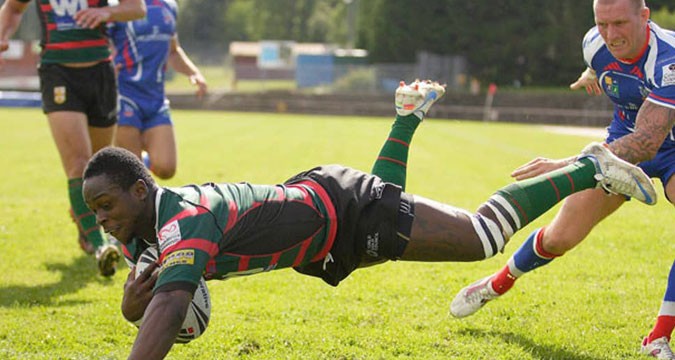 1. One of their most prolific players had a serious, life-threatening disease.
Nigerian-born winger Ade Adebisi hit 51 tries in only 66 games for London Skolars, between 2010 and 2013, after similar try-scoring exploits with Whitehaven. What makes his try-scoring prowess more impressive is that Adebisi suffers from Sickle Cell Disease, which can
1. One of their most prolific players had a serious, life-threatening disease.
Nigerian-born winger Ade Adebisi hit 51 tries in only 66 games for London Skolars, between 2010 and 2013, after similar try-scoring exploits with Whitehaven. What makes his try-scoring prowess more impressive is that Adebisi suffers from Sickle Cell Disease, which can The Self-Isolation Chronicles: London Skolars
 1. One of their most prolific players had a serious, life-threatening disease.
Nigerian-born winger Ade Adebisi hit 51 tries in only 66 games for London Skolars, between 2010 and 2013, after similar try-scoring exploits with Whitehaven. What makes his try-scoring prowess more impressive is that Adebisi suffers from Sickle Cell Disease, which can
1. One of their most prolific players had a serious, life-threatening disease.
Nigerian-born winger Ade Adebisi hit 51 tries in only 66 games for London Skolars, between 2010 and 2013, after similar try-scoring exploits with Whitehaven. What makes his try-scoring prowess more impressive is that Adebisi suffers from Sickle Cell Disease, which can 